
Mambo Beach: The Jewel of Curaçao
Nestled on the sun-kissed shores of Curaçao, Mambo Beach offers a pristine slice of Caribbean paradise. Renowned for its powdery white sands and crystal-clear turquoise waters, this beach is a haven for both relaxation and adventure. Whether you're interested in lounging under a thatched umbrella with a cocktail in hand or diving into the vibrant underwater world, Mambo Beach has something for everyone. The beach is lined with a variety of beach bars and restaurants, where you can savor local cuisines and refreshing drinks. The nightlife at Mambo Beach is equally enticing, with live music and DJ sets that keep the energy high well into the night. Families will also find plenty of activities to keep the little ones entertained, including an adjacent aquarium and water sports. For those who love shopping, the Mambo Beach Boulevard offers a range of boutiques and souvenir shops. The beach's convenient location, just a short drive from Willemstad, makes it an accessible day trip for those staying on the island. With its stunning sunsets, welcoming atmosphere, and endless activities, Mambo Beach promises an unforgettable experience for all visitors.
Local tips in Mambo Beach
- Arrive early to secure the best spot on the beach, especially on weekends.
- Bring cash for small purchases as not all vendors accept credit cards.
- Don't miss the Seaquarium next door for a fun and educational experience.
- Try the local dish 'Keshi Yena' at one of the nearby restaurants.
- Wear reef-safe sunscreen to protect the coral and marine life.
- Stay for the sunset; it's one of the most picturesque views on the island.
Mambo Beach: The Jewel of Curaçao
Nestled on the sun-kissed shores of Curaçao, Mambo Beach offers a pristine slice of Caribbean paradise. Renowned for its powdery white sands and crystal-clear turquoise waters, this beach is a haven for both relaxation and adventure. Whether you're interested in lounging under a thatched umbrella with a cocktail in hand or diving into the vibrant underwater world, Mambo Beach has something for everyone. The beach is lined with a variety of beach bars and restaurants, where you can savor local cuisines and refreshing drinks. The nightlife at Mambo Beach is equally enticing, with live music and DJ sets that keep the energy high well into the night. Families will also find plenty of activities to keep the little ones entertained, including an adjacent aquarium and water sports. For those who love shopping, the Mambo Beach Boulevard offers a range of boutiques and souvenir shops. The beach's convenient location, just a short drive from Willemstad, makes it an accessible day trip for those staying on the island. With its stunning sunsets, welcoming atmosphere, and endless activities, Mambo Beach promises an unforgettable experience for all visitors.
When is the best time to go to Mambo Beach?
Iconic landmarks you can’t miss
Queen Emma Bridge
Experience the charm of Willemstad at the Queen Emma Bridge, a stunning pedestrian bridge connecting two vibrant districts with breathtaking views.
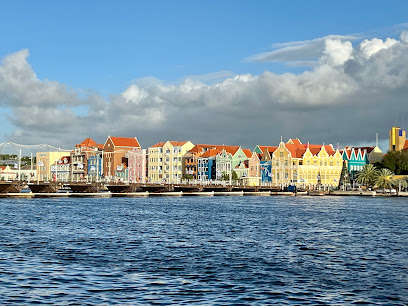
Cas Abao Beach
Discover paradise at Cas Abao Beach in Curaçao: pristine sands, turquoise waters, vibrant marine life, and a full-service beach experience await!
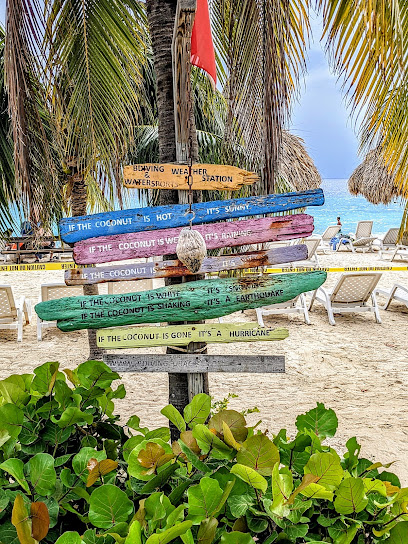
Curaçao Sea Aquarium
Explore the underwater wonders at Curaçao Sea Aquarium, where marine life and education come together for an unforgettable Caribbean experience.
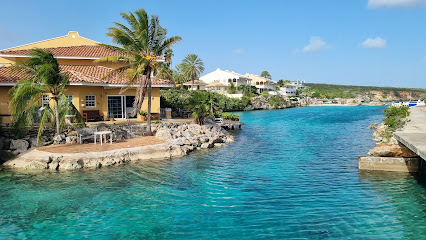
Mambo Beach Boulevard
Experience the vibrant shopping, dining, and nightlife at Mambo Beach Boulevard in Willemstad, the ultimate tourist destination in Curacao.
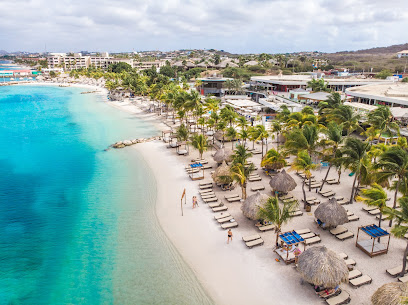
Kokomo Beach
Discover Kokomo Beach in Curaçao: turquoise waters, white sands, lively atmosphere, and unforgettable Caribbean experiences await!
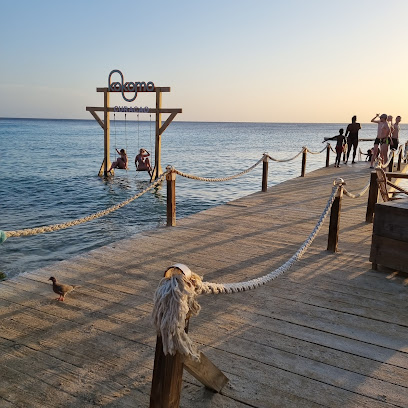
Landhuis Chobolobo
Explore the historical Landhuis Chobolobo in Willemstad, Curaçao, and discover the enchanting world of Blue Curaçao liqueur.
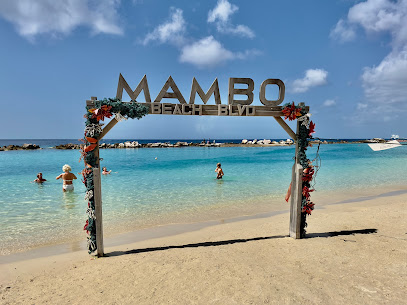
Hato Caves
Discover Curaçao's geological wonders and historical secrets within the captivating Hato Caves, featuring stunning formations and ancient stories.
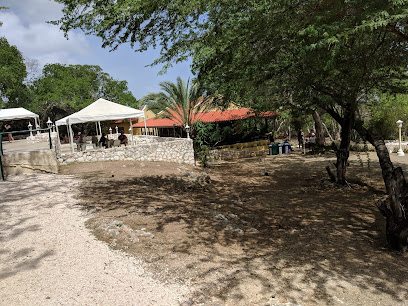
Old Market
Experience the vibrant food culture and rich history of Old Market in Willemstad, a must-visit for every traveler to Curaçao.
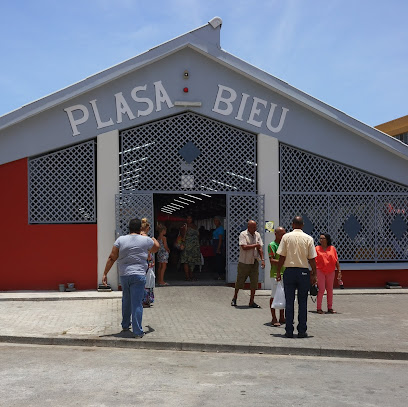
Hemingway
Experience beachfront dining at Hemingway Curaçao: international cuisine, refreshing cocktails, and live music on Mambo Beach Boulevard.
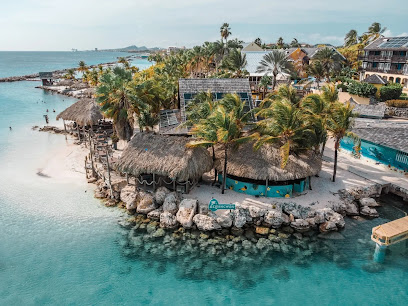
Mermaid Boat Trips Curacao
Discover Klein Curaçao with Mermaid Boat Trips: Unforgettable excursions to paradise with a private beach house and top-notch amenities.
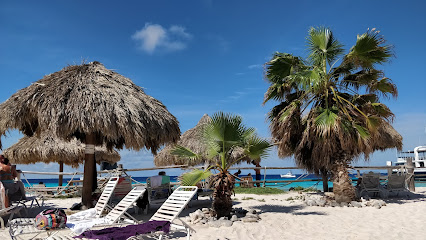
Cabana Beach Curacao
Experience the vibrant island life at Cabana Beach Curacao: Sun, sand, delicious cuisine, and unforgettable entertainment await!
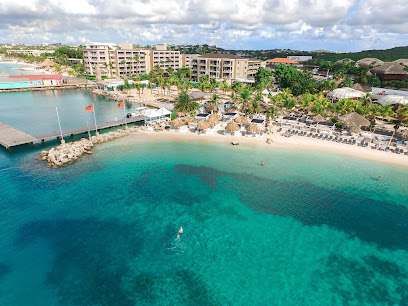
Fort Beekenburg
Discover the rich history and stunning views at Fort Beekenburg, a beautifully preserved 17th-century fort in Curaçao's Caribbean paradise.
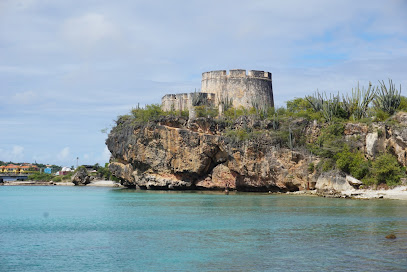
Wet & Wild Beach Club
Experience the vibrant beach life at Wet & Wild Beach Club on Curaçao's Mambo Beach – cocktails, bites, and unforgettable parties!
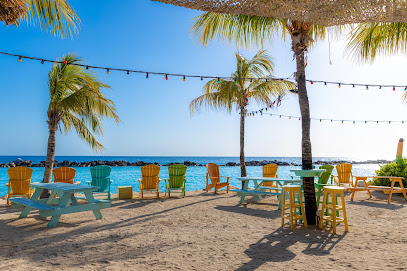
Chill Beach Bar & Grill
Experience the ultimate Curaçao beach vibe at Chill Beach Bar & Grill: BBQ, cocktails, and stunning ocean views await!
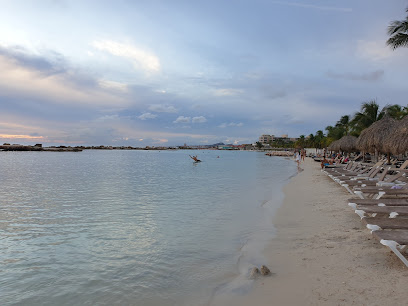
Van der Valk Kontiki Beach Resort Curaçao
Experience the ultimate getaway at Van der Valk Kontiki Beach Resort Curaçao, where luxury meets the beauty of the Caribbean in Willemstad.
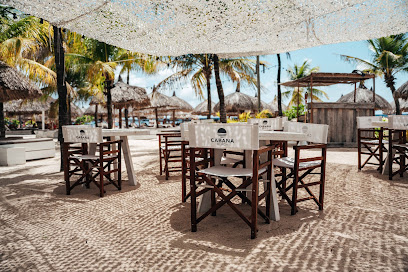
Unmissable attractions to see
Curaçao Sea Aquarium
Experience the vibrant marine life of the Caribbean at the Curaçao Sea Aquarium, a premier tourist attraction in Willemstad.
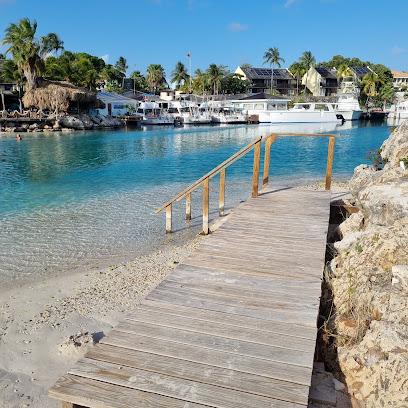
Marie Pampoen Beach
Experience the enchanting beauty of Marie Pampoen Beach, a must-visit destination in Willemstad, Curaçao, perfect for relaxation and adventure.
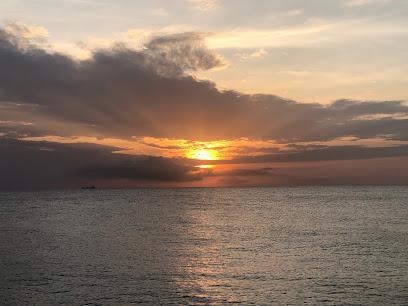
Den Paradera Herb Garden Curaçao by Dinah Veeris
Experience the serene beauty of Den Paradera Herb Garden in Curaçao, a haven of medicinal herbs and local culture amidst lush landscapes.
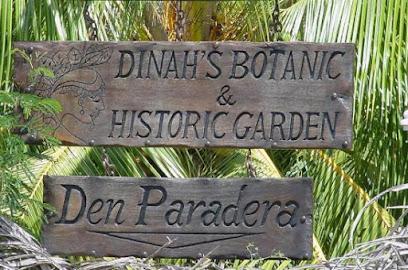
Duikcentrum van de Ven
Experience the underwater wonders of Curaçao at Duikcentrum van de Ven, the ultimate diving center in Jan Thiel, offering unforgettable marine adventures.
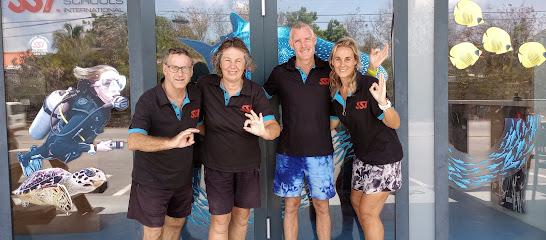
Tugboat Bar
Experience the ultimate Caribbean vibe at Tugboat Bar in Curaçao: stunning waterfront views, vibrant atmosphere, and a perfect spot to unwind after exploring the famous Tugboat wreck.
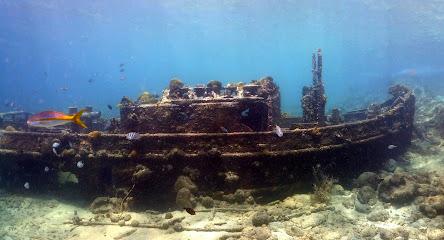
Playa Kanoa
Discover Playa Kanoa, Curaçao: A surfer's paradise with rugged beauty, consistent waves, and vibrant marine life, offering an authentic Caribbean escape.
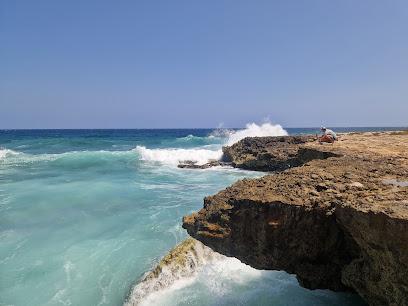
Dushi Diving
Discover the underwater treasures of Curaçao at Dushi Diving, where adventure awaits with every dive into the vibrant Caribbean Sea.
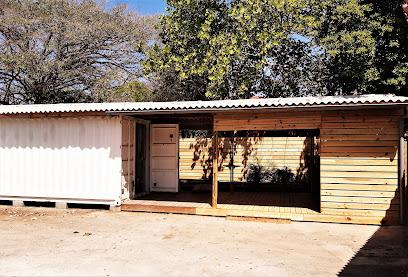
Street Art Skalo
Discover Street Art Skalo in Willemstad, Curaçao: An open-air museum where vibrant murals tell stories of local culture, history, and community, creating a colorful tapestry of expression.
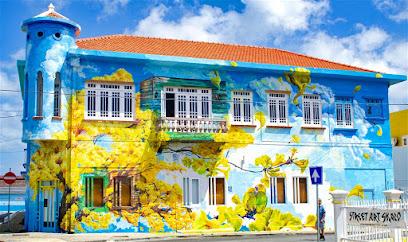
Bida ta un Bunita Lucha (artwork)
Immerse yourself in the vibrant artistry of Bida ta un Bunita Lucha, a cultural masterpiece in Willemstad, Curaçao, reflecting the island's rich heritage.
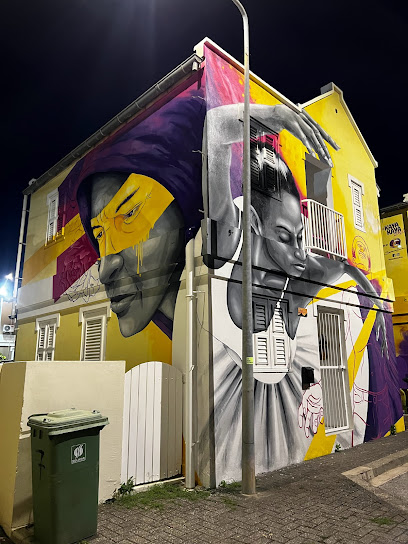
Emancipate Yourself from Mental Slavery (artwork)
Discover the profound message behind Emancipate Yourself from Mental Slavery, a striking artwork in the vibrant Otrobanda neighborhood of Willemstad, Curaçao.
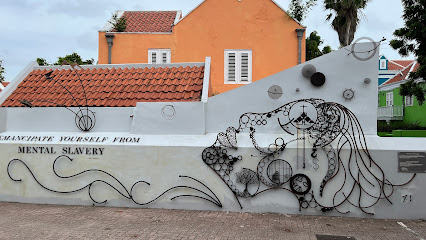
Ser'i Otrobanda viewpoint
Discover breathtaking panoramic views of Willemstad from Ser'i Otrobanda viewpoint, a serene escape in the heart of Curaçao's historic Otrobanda district, showcasing vibrant architecture and rich culture.
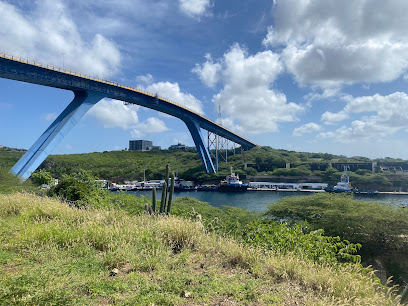
Баржа на Затоне
Experience the tranquility and stunning natural beauty at Barjé na Zatone in Willemstad, Curaçao – a perfect escape for every traveler.
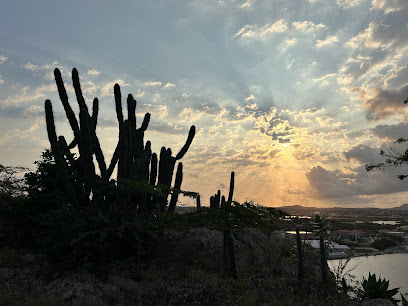
E. Sambo's art corner
Explore the vibrant artistry of Curaçao at E. Sambo's Art Corner, a unique cultural gem in Willemstad that showcases local talent and creativity.

Unity is strength wall
Discover the vibrant 'Unity is Strength' mural in Otrobanda, Willemstad, a cultural heartland showcasing Curaçao's rich history, colorful street art, and resilient community spirit.
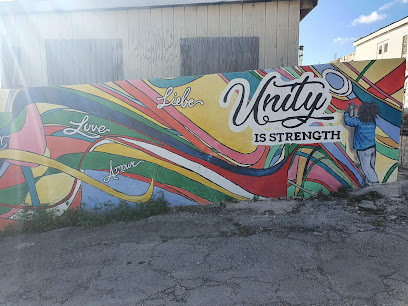
Wandelpad Mambo naar Jan Thiel
Discover Curaçao's hidden gem: Hike the scenic coastal trail connecting Mambo Beach and Jan Thiel, offering stunning views, diverse flora, and a refreshing escape into nature.
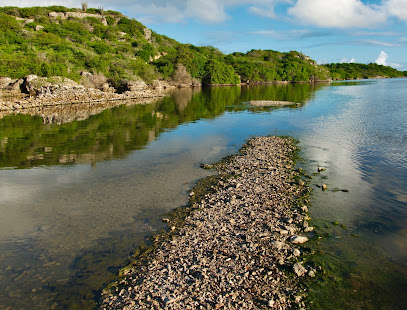
Essential places to dine
Mambo Beach
Discover the beauty of Mambo Beach in Curaçao: pristine sands, exciting water sports, and vibrant nightlife await you.
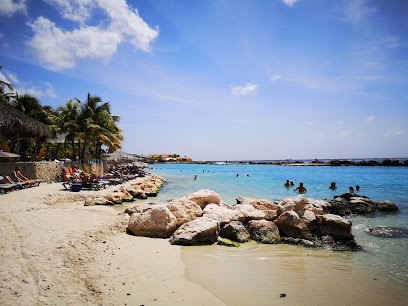
Mambo Beach Boulevard
Experience the best of dining, shopping, and nightlife at Mambo Beach Boulevard in Willemstad, Curaçao.
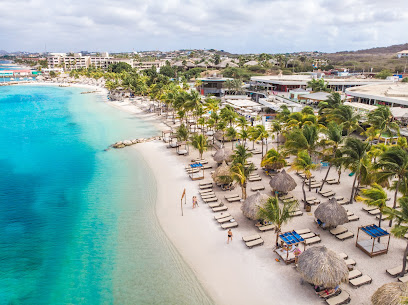
Zanzibar Beach & Restaurant
Experience exquisite dining at Zanzibar Beach & Restaurant, where culinary delights meet stunning Caribbean views in Jan Thiel, Curaçao.
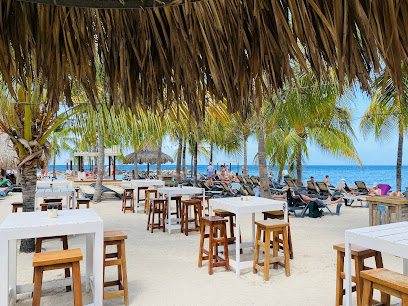
Hemingway
Savor Caribbean flavors and enjoy live music at Hemingway in Willemstad - a culinary gem in Curaçao's vibrant dining scene.
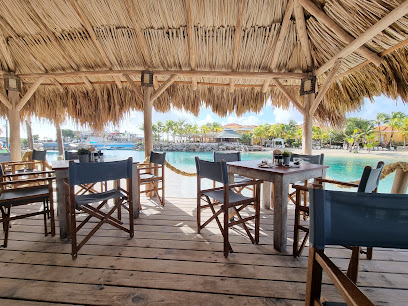
Zest Restaurant& Beach Cafe
Experience exquisite Caribbean-Mediterranean cuisine at Zest Restaurant & Beach Cafe with breathtaking beachfront views in Jan Thiel, Curaçao.
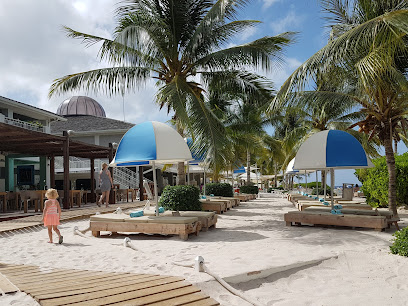
Sea Side Terrace
Experience exquisite seafood dining with breathtaking ocean views at Sea Side Terrace in Willemstad, Curaçao.
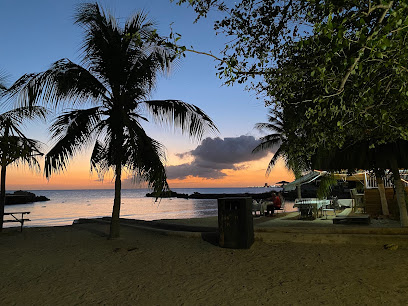
Cabana Beach Curacao
Discover paradise at Cabana Beach Curacao - where sun-soaked relaxation meets vibrant dining and entertainment.
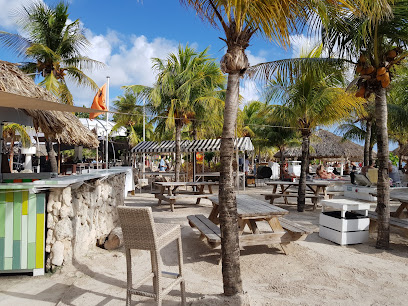
Chill Beach Bar & Grill
Experience exquisite dining at Chill Beach Bar & Grill in Willemstad, Curaçao—where culinary delights meet stunning ocean views.
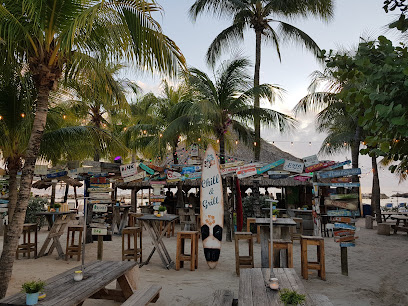
MOOD Beach Curacao
Experience culinary bliss with breathtaking ocean views at MOOD Beach Curacao - your ultimate tropical dining destination.
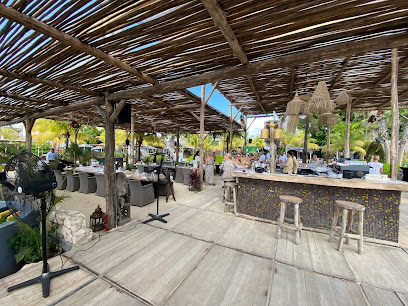
Koko's
Experience authentic Caribbean flavors at Koko's in Jan Thiel - where culinary excellence meets breathtaking views.
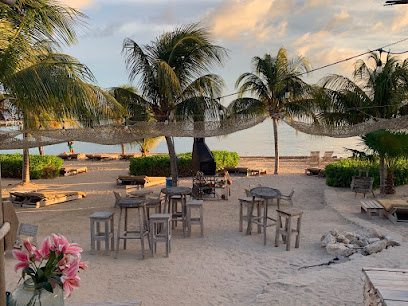
The Green House
Experience delicious cuisine with stunning sea views at The Green House in Curaçao - where fresh ingredients meet vibrant flavors.
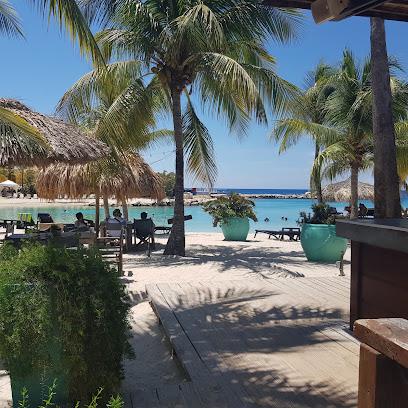
Pizza Mare
Discover authentic Italian flavors at Pizza Mare in Willemstad – where every pizza tells a story!
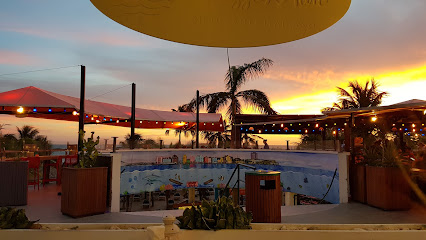
Fish & Joy Bistro & Wine Bar Curaçao
Experience the best of Caribbean cuisine at Fish & Joy Bistro & Wine Bar Curaçao—where every dish tells a story.
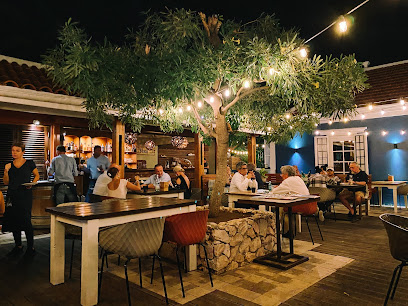
Bonita Beach Club Curaçao
Discover Bonita Beach Club Curaçao – where exquisite cuisine meets breathtaking ocean views in a vibrant beachside setting.
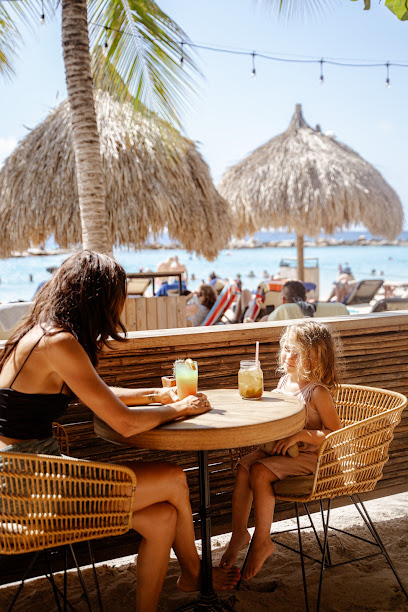
El Grill & El Mexicano
Experience authentic Mexican cuisine at El Grill & El Mexicano on Mambo Beach Boulevard in Willemstad – where flavor meets paradise.
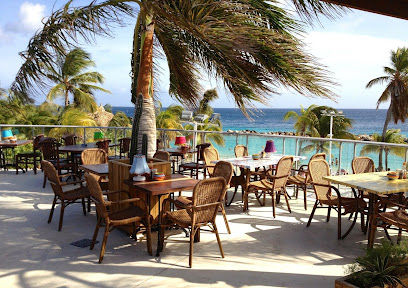
Markets, malls and hidden boutiques
Mambo Beach Boulevard
Discover the charm of Mambo Beach Boulevard, a lively shopping and entertainment paradise in Curaçao with stunning beach views and vibrant nightlife.
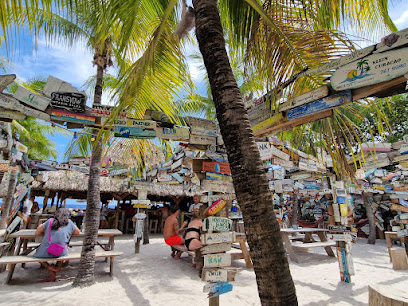
Byron's tattoo
Experience the artistry of Byron's Tattoo in Willemstad, where creativity meets professionalism amidst the stunning backdrop of Mambo Beach.
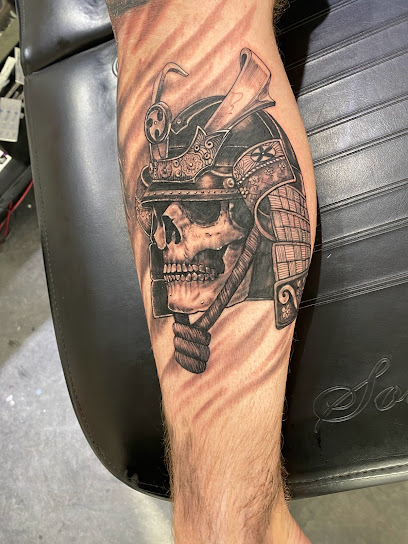
Chichi Shop Punda
Discover the vibrant essence of Curaçao at Chichi Shop Punda, your go-to destination for unique souvenirs and local treasures.
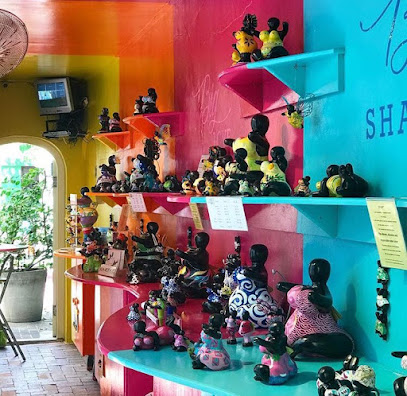
Maison Zuly
Discover the vibrant spirit of Curaçao at Maison Zuly, a boutique offering unique local fashion and handcrafted treasures in Willemstad.
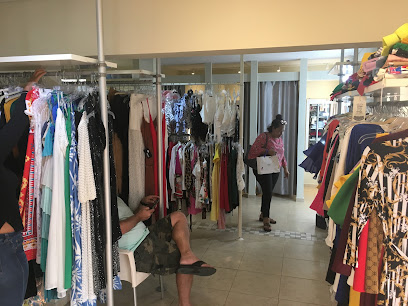
YourGiftCheque
Explore YourGiftCheque, the ultimate gift shop in Willemstad, offering unique souvenirs and corporate gifts with a local touch.
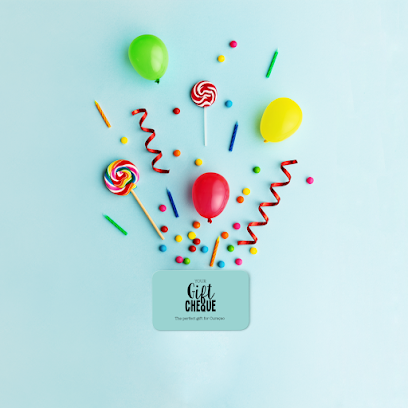
JOY by OPRA
Explore the vibrant gift shop JOY by OPRA in Willemstad, Curaçao, for unique souvenirs and local crafts that capture the island's essence.
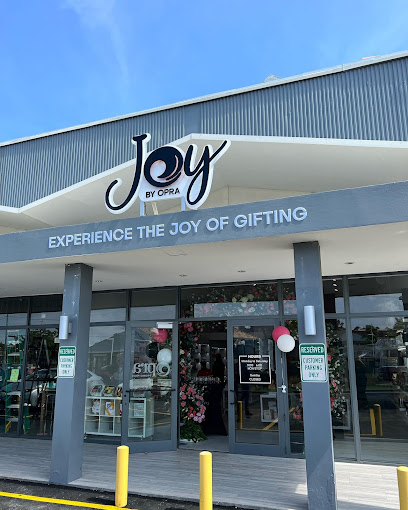
Flip Flop Shops
Discover the ultimate beach footwear at Flip Flop Shops in Mambo Beach, Curaçao – where style meets comfort for every sun lover.
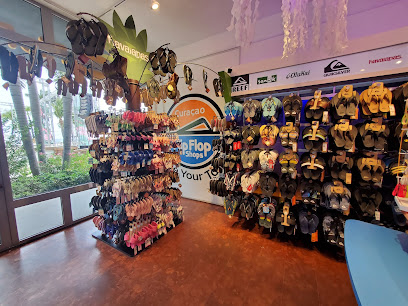
Don Caribe
Explore Don Caribe in Willemstad, a premier cigar shop offering an exquisite selection of fine cigars and a unique cultural experience in Curaçao.
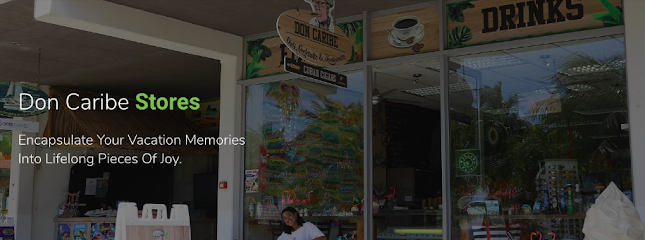
Kos Bon Shop
Explore Kos Bon Shop for unique gifts and authentic souvenirs that capture the spirit of Curaçao's vibrant culture and artistry.
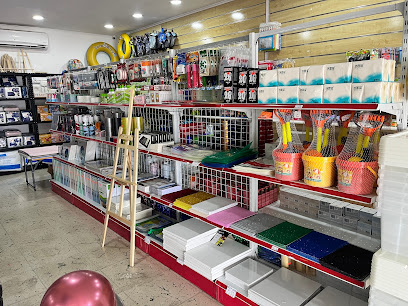
Hippie
Explore Hippie in Willemstad, a vibrant clothing store offering unique styles and local artistry for a perfect island experience.
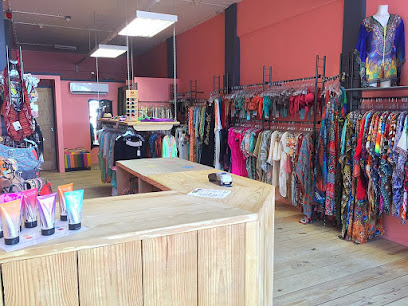
BodyCandy Curaçao
Discover unique fashion pieces at BodyCandy Curaçao, where local culture meets vibrant style in the heart of Willemstad.

Seeya Collection
Explore Seeya Collection, a premier fashion accessories store in Willemstad, Curaçao, where unique style meets island charm.
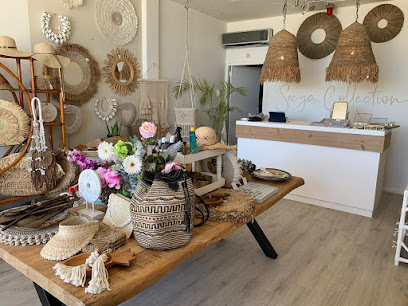
Dushi Store
Discover the vibrant spirit of Curacao at Dushi Store, your go-to destination for unique souvenirs and local delicacies.
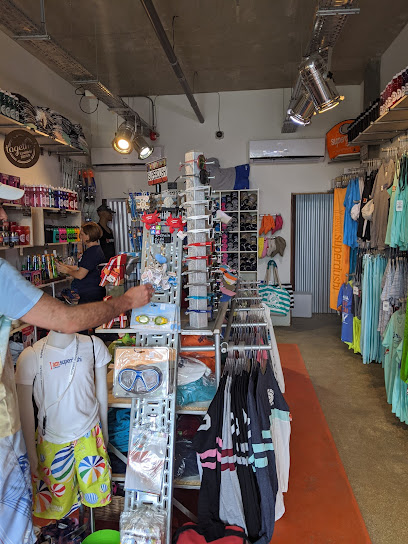
Gerda Gift Shop & Boutique
Explore Gerda Gift Shop & Boutique in Willemstad for unique souvenirs and local crafts that embody the spirit of Curaçao.
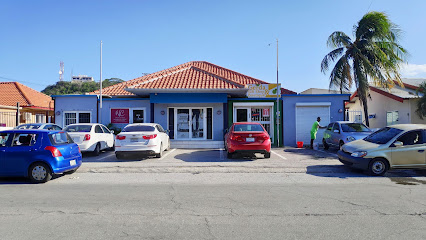
Out of the Blue
Explore exquisite handcrafted jewelry and unique gifts at 'Out of the Blue' in Willemstad, capturing the essence of Curaçao's vibrant culture.
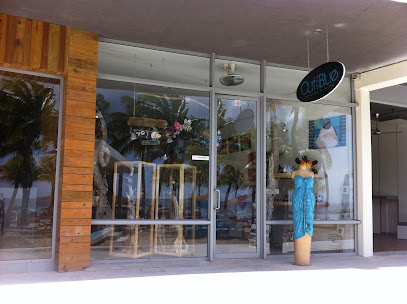
Essential bars & hidden hideouts
Mambo Beach Boulevard
Discover the vibrant Mambo Beach Boulevard in Curaçao, where shopping, dining, and nightlife converge along a stunning coastal backdrop.
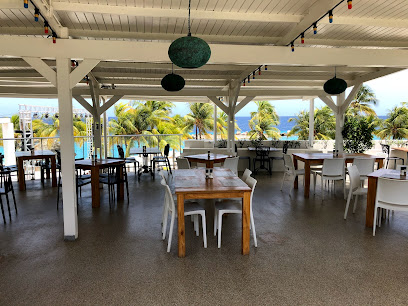
Pirate Bay Curaçao Beach Club and Restaurant
Discover the vibrant atmosphere and delicious Caribbean cuisine at Pirate Bay Curaçao Beach Club and Restaurant, where ocean views meet culinary delight.
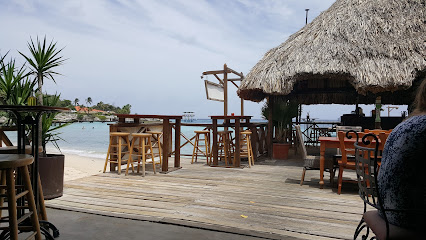
Hemingway
Discover Hemingway, a culinary paradise in Willemstad, Curaçao, blending delicious cuisine with vibrant nightlife and stunning waterfront views.
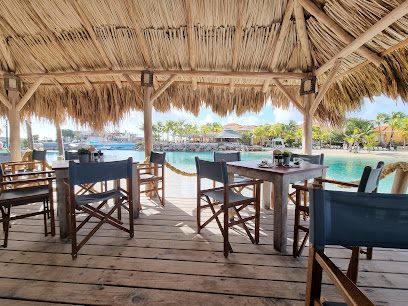
Sea Side Terrace
Experience the best of Curaçao's seafood at Sea Side Terrace, where fresh flavors meet breathtaking ocean views.
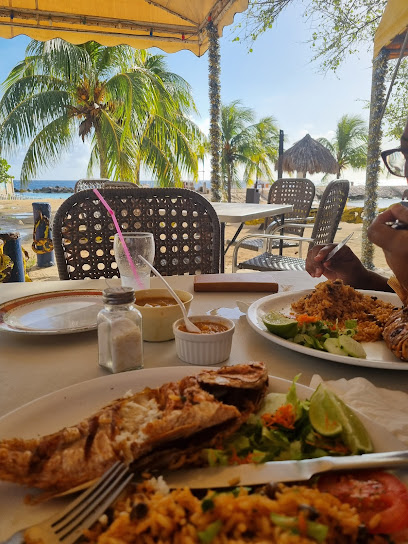
Cabana Beach Curacao
Discover the vibrant charm of Cabana Beach Curacao, where stunning views, delicious cuisine, and lively entertainment come together in a tropical paradise.

Wet & Wild Beach Club
Discover the ultimate beachside escape at Wet & Wild Beach Club in Curaçao, where relaxation meets adventure in a stunning tropical setting.
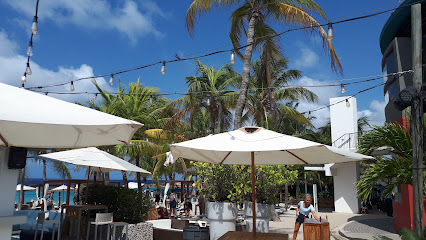
Chill Beach Bar & Grill
Experience the vibrant flavors of the Caribbean at Chill Beach Bar & Grill, a tropical dining haven on the shores of Curaçao.
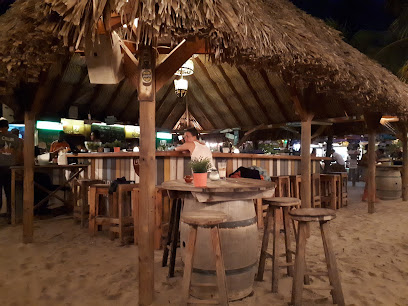
MOOD Beach Curacao
Experience the ultimate beachfront dining at MOOD Beach Curacao, where stunning views meet exquisite flavors in a tropical paradise.
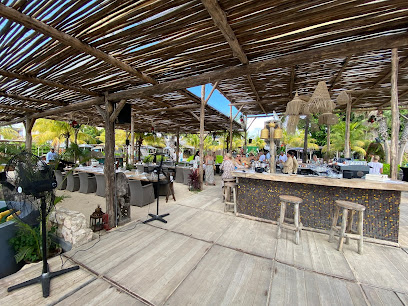
The Green House
Experience the vibrant flavors of Curaçao at The Green House, where delicious food meets breathtaking ocean views.
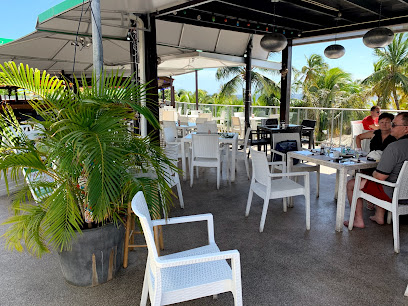
Mambo beach
Discover the vibrant atmosphere of Mambo Beach, where sun, sand, and delicious cuisine create the ultimate Caribbean getaway.
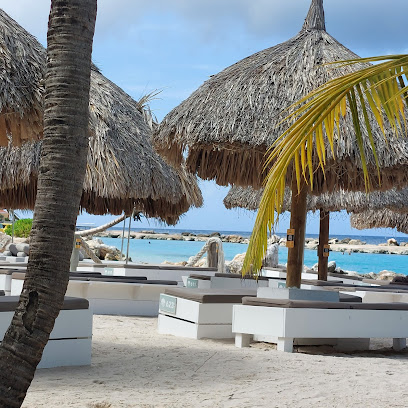
Bonita Beach Club Curaçao
Discover blissful relaxation and vibrant beach vibes at Bonita Beach Club Curaçao, where exquisite cuisine meets breathtaking ocean views.
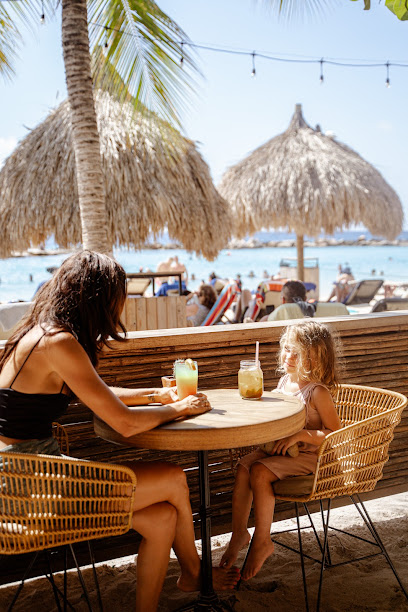
El Grill & El Mexicano
Experience the vibrant flavors of Caribbean and Mexican cuisine at El Grill & El Mexicano, where culinary delights meet stunning beach views.
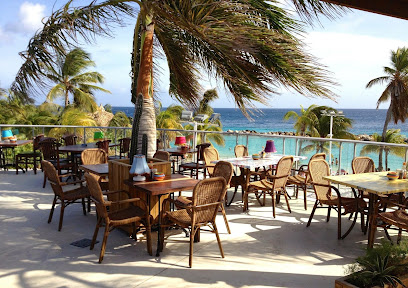
Bocas Restaurant
Experience the vibrant flavors of the Caribbean at Bocas Restaurant in Curaçao, a must-visit for food lovers and tourists alike.
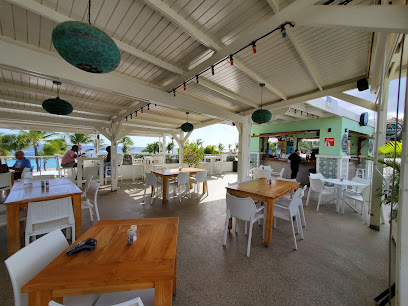
Bliss The Berry
Experience the vibrant flavors and refreshing atmosphere at Bliss The Berry, a top lunch destination in Willemstad, Curaçao.
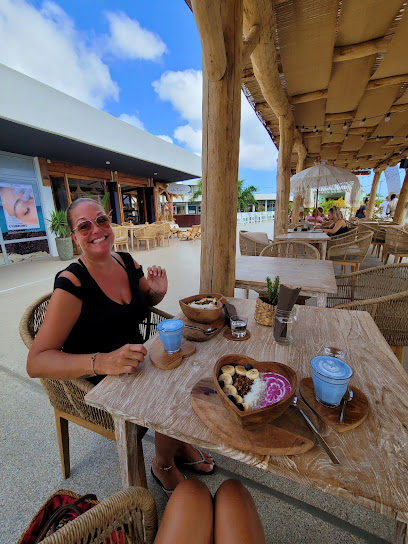
Local Phrases about Mambo Beach
-
- HelloBon dia
[bon dee-ah] - GoodbyeAyo
[ah-yo] - YesSi
[see] - NoNo
[noh] - Please/You're welcomePor fabor
[por fah-bor] - Thank youDanki
[dahn-kee] - Excuse me/SorrySori
[soh-ree] - How are you?Kon ta bai?
[kon tah bah-ee?] - Fine. And you?Bon. I bo?
[bon. ee boh?] - Do you speak English?Bo papia Ingles?
[boh pah-pee-ah een-gles?] - I don't understandMi no ta kompronde
[mee noh tah kom-prohn-deh]
- HelloBon dia
-
- I'd like to see the menu, pleaseMi ke mira e menu, por fabor
[mee keh mee-rah eh meh-noo, por fah-bor] - I don't eat meatMi no ta kome karni
[mee noh tah koh-meh kahr-nee] - Cheers!Salud!
[sah-lood] - I would like to pay, pleaseMi ke paga, por fabor
[mee keh pah-gah, por fah-bor]
- I'd like to see the menu, pleaseMi ke mira e menu, por fabor
-
- Help!Yudami!
[yoo-dah-mee!] - Go away!Bai bai!
[bye bye!] - Call the Police!Yama polis!
[yah-mah poh-lees!] - Call a doctor!Yama un dokter!
[yah-mah oon dohk-tehr!] - I'm lostMi a pèrdi
[mee ah pair-dee] - I'm illMi ta malu
[mee tah mah-loo]
- Help!Yudami!
-
- I'd like to buy...Mi ke kumpra...
[mee keh koom-prah...] - I'm just lookingMi ta solamente mira
[mee tah soh-lah-men-teh mee-rah] - How much is it?Kuantu ta esei?
[kwan-too tah eh-say?] - That's too expensiveEsaki ta muchu karu
[eh-sah-kee tah moo-choo kah-roo] - Can you lower the price?Bo por baha e preis?
[boh por bah-hah eh pray-s?]
- I'd like to buy...Mi ke kumpra...
-
- What time is it?Kuantu ora e ta?
[kwan-too oh-rah eh tah?] - It's one o'clockTa un ora
[tah oon oh-rah] - Half past (10)Mita (10)
[mee-tah (10)] - MorningMardugá
[mar-doo-gah] - AfternoonTardi
[tar-dee] - EveningAnochi
[ah-noh-chee] - YesterdayAyera
[ah-yeh-rah] - TodayAwe
[ah-weh] - TomorrowMañana
[mah-nyah-nah] - 1Uno
[oo-no] - 2Dos
[dohs] - 3Tres
[trehs] - 4Kuater
[kwah-ter] - 5Sinku
[seen-koo] - 6Sèis
[says] - 7Siete
[syeh-teh] - 8Ocho
[oh-choh] - 9Nuebe
[nweh-beh] - 10Diez
[dyehs]
- What time is it?Kuantu ora e ta?
-
- Where's a/the...?Unda ta e...?
[oon-dah tah eh...?] - What's the address?Kiko ta e adres?
[kee-koh tah eh ah-drehs?] - Can you show me (on the map)?Bo por mustra mi (riba e mapa)?
[boh por moos-trah mee (ree-bah eh mah-pah)?] - When's the next (bus)?Kuantu ta e siguiente (bus)?
[kwan-too tah eh see-gwee-ehn-teh (boos)?] - A ticket (to ....)Un tiki (pa ....)
[oon tee-kee (pah ....)]
- Where's a/the...?Unda ta e...?
History of Mambo Beach
-
Mambo Beach, located on the southern coast of Curacao, has a rich history that dates back to the island's indigenous Arawak people. The Arawaks were known for their fishing skills and utilized the beach for sustenance long before European colonization. Archaeological findings suggest that the area was a thriving community with a robust culture centered around the sea.
-
During the 17th century, Curacao became a Dutch colony, and Mambo Beach was no exception to the changes brought by European influence. The beach served as a strategic point for Dutch sailors and traders. The nearby Willemstad became a bustling port, and Mambo Beach saw its share of activity as a recreational area for colonial settlers and sailors alike.
-
The early 20th century saw significant development in the area surrounding Mambo Beach. With the advent of modern tourism, the beach began to transform into a popular destination for both locals and international visitors. The construction of infrastructure like roads, hotels, and restaurants marked the beginning of Mambo Beach as a tourist hotspot.
-
Mambo Beach has always been more than just a beautiful stretch of sand and sea; it is a cultural melting pot. The beach hosts numerous cultural events, concerts, and festivals that celebrate Curacao's diverse heritage. This includes the annual Carnival, which sees vibrant parades and performances that draw crowds from around the world.
-
In recent years, Mambo Beach has become a focal point for marine conservation efforts. Organizations and local authorities have worked together to protect the coral reefs and marine life that make the area so unique. Initiatives include the establishment of marine protected areas and educational programs aimed at promoting sustainable tourism practices.
-
Today, Mambo Beach is a bustling tourist destination known for its crystal-clear waters, vibrant nightlife, and luxurious amenities. It remains a place where history meets modernity, offering visitors a chance to explore Curacao's rich past while enjoying contemporary comforts. The beach's promenade is lined with shops, restaurants, and bars, making it a central hub for both relaxation and entertainment.
Mambo Beach Essentials
-
Mambo Beach is located in the southeastern part of Willemstad, the capital of Curaçao. The nearest international airport is Hato International Airport (CUR), approximately 16 kilometers away. From the airport, travelers can take a taxi, rent a car, or use shuttle services provided by some hotels. The journey typically takes around 25 minutes by road. Public buses are also available but may require a transfer in Willemstad.
-
Willemstad and Mambo Beach are well connected by public buses and taxis. Many attractions are within walking distance once you are at Mambo Beach. For those looking to explore further, renting a car is a convenient option, and there are several rental agencies near the airport and in Willemstad. Taxis are readily available but can be more expensive. Ride-sharing services are limited, so plan accordingly.
-
The official currency of Curaçao is the Netherlands Antillean Guilder (ANG), but US Dollars (USD) are widely accepted. Major credit cards are accepted in most hotels, restaurants, and shops. ATMs are available throughout Willemstad and near Mambo Beach, dispensing both ANG and USD. It is advisable to carry some cash for smaller vendors and tips.
-
Curaçao is generally safe for tourists, but it is essential to take standard precautions. Avoid walking alone at night in unfamiliar areas, and keep an eye on your belongings, especially in crowded places. While Mambo Beach itself is secure, some neighborhoods in Willemstad, such as Ser'i Domi and Punda, have higher crime rates targeting tourists. Always use reputable transportation services and stay in well-lit, populated areas.
-
In case of emergency, dial 911 for immediate assistance. This number connects you to police, fire, and medical services. The nearest hospital to Mambo Beach is the St. Elisabeth Hospital in Willemstad. It is recommended to have travel insurance that covers medical emergencies. For minor health issues, pharmacies are available in the area where you can purchase over-the-counter medications.
-
Fashion: Do wear lightweight, casual clothing suitable for tropical weather. Swimwear is appropriate at the beach but not in town or restaurants. Religion: Do respect local customs, and be mindful when visiting religious sites. Dress modestly in these areas. Public Transport: Do be respectful and patient. Buses may not always run on time. Don’t eat or drink on public transport. Greetings: Do greet people with a friendly 'Bon Dia' (Good Morning) or 'Bon Tardi' (Good Afternoon). A handshake is common. Eating & Drinking: Do try local delicacies like Keshi Yena and Funchi. Don’t refuse food or drink offered as hospitality; it is considered impolite.
-
To experience Mambo Beach like a local, visit during the early morning or late afternoon when it's less crowded. Enjoy local music and dance at one of the beach bars. Engage with locals, as they are friendly and often excited to share their culture. Don't miss the Sea Aquarium, which offers interactive experiences with marine life. For a unique dining experience, try one of the food trucks (truk di pan) that serve local snacks and meals.
Trending Landmarks in Mambo Beach
Nearby Cities to Mambo Beach
-
Things To Do in Julianadorp
-
Things To Do in Sint Michiel
-
Things To Do in Barber
-
Things To Do in Soto
-
Things To Do in Sabana Westpunt
-
Things To Do in Westpunt
-
Things To Do in San Nicolas
-
Things To Do in Savaneta
-
Things To Do in Santa Cruz
-
Things To Do in Pos Chiquito
-
Things To Do in Paradera
-
Things To Do in Sero Blanco
-
Things To Do in Tanki Leendert
-
Things To Do in Oranjestad
-
Things To Do in Noord









